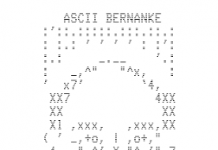As bitcoin tops the $15,000 mark, according to digital-currency website CoinDesk, finance experts are weighing in on whether or not to invest in the cryptocurrency. While some are calling it a total scam, others are advising that now’s the time to buy.
Regardless of which side you fall on, one thing is for sure: It would be unfortunate to misplace your bitcoin these days. Some unlucky people, however, have done just that.
And they’re not alone. In fact, around 2.78 million bitcoins have been lost since the cryptocurrency was created in 2009, according to Newsweek. That’s almost $30 billion today.
Here are three of the wildest things people are doing to recover their lost bitcoin:
1. One person has been trying to search a toxic landfill
James Howell, an IT worker in the United Kingdom, began mining bitcoin on his personal laptop in 2009. The Telegraph reports that his computer broke in 2013 but he kept the hard drive in case bitcoin became valuable one day. It did.
While cleaning his home that year, he mistakenly put the drive into a waste bin at his local landfill site in Newport, South Wales, where it got buried.
Now, with bitcoin’s value hovering just above $15,000, Howell’s 7,500 lost bitcoins are worth more than $117 million (as of Thursday afternoon).
The U.K. resident wants to try searching the landfill, which reportedly has 350,000 tons of waste, but the Newport City Council won’t allow it.
According to tech website Wired, the landfill is not open to the public and trespassing would be considered a criminal offense.
And even if the drive were recovered, it likely would no longer work after being exposed to heavy and potentially toxic waste for so long.
2. Investors are undergoing hypnotherapy
Many early Bitcoin investors are in a painful predicament. They can’t remember the complex security codes they originally created to gain access to their Bitcoin wallet. Plus, there’s no way to reset the passwordif you forget, reports Fortune and The Wall Street Journal.
But there’s hope on the horizon. South Carolina hypnotist James Miller has recently begun helping people recall forgotten passwords and find misplaced storage devices.
“I’ve developed a collection of techniques,” he tells the newspaper, “that allow people to access older memories or see things they’ve put away in a stashed spot.”
Miller charges one bitcoin plus 5 percent of the amount recovered for his services, although he says his rates are flexible.
3. Man hacks his Bitcoin vault
Former Wired editor Mark Frauenfelder wrote his password on an orange piece of paper in January 2017. In March, he and his wife jetted off to Tokyo for vacation. A month after returning from vacation, he noticed his orange slip was nowhere to be found. The house cleaner he hired while on vacation had apparently thrown away the piece of paper.
Unperturbed, he typed in the password from memory and received this message: Wrong PIN entered.
After three more fruitless tries, a countdown timer appeared on the screen, which made him wait a few seconds before he could try another PIN.
However, the delay doubled every time the wrong PIN was entered. From April to August, Frauenfelder tried hacking into his vault, to no avail.
One day, he received an email from the vault’s manufacturer explaining that the security was being updated. Per the email, there was a security vulnerability within the vault system that needed fixing. Frauenfelder reached out to a bitcoin expert who put him in contact with a 15-year-old coding whiz who could give him video instructions on how to exploit the vulnerability and hack the vault.
After agreeing to pay the teenager the equivalent of $3,700 in bitcoin, he received instructions that would hack his computer and show him the password.
“Following Saleem’s instructions, I copied a string of text,” he writes for Wired. “The PIN appeared instantly. Months of soul-crushing anxiety fell away like big clods of mud that had been clinging to my shoulders.”




















